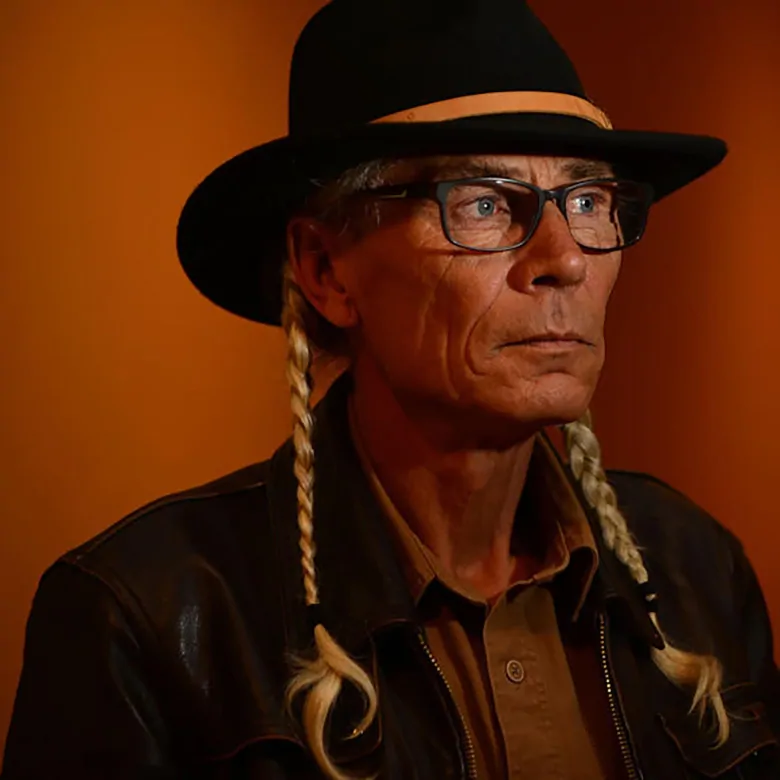'Banishment doesn't promote healing': You can't fight addiction with punishment

First Nations leadership, needing to do something in the face of a crisis, have sometimes turned to banishment of those selling drugs in our communities.
The problem with banishing a drug dealer, or locking them up, is that as soon as they are removed from the community, someone takes their place.
We do not have a drug dealer problem. We have a substance use problem.
‘There is rarely a difference between drug dealer and drug user’
First Nation Communities in Saskatchewan are seeing a rise in the use of methamphetamines that began in the urban centres, spread to our communities and is now steadily making its way northward.
The fundamental reason community members demand substances is to self-medicate their trauma. As First Nations people we have a lot of trauma to heal from. Residential schools, the Sixties Scoop, loss of traditional lifestyles, the over-incarceration of our people and the resultant ongoing intergenerational violence all add to the trauma load.
When the load is so great that our people are looking for something to alleviate it, we will use anything that might offer some respite from the constant anxiety, depression, sorrow and meaninglessness that are the symptoms of trauma.
We don’t need more police, more punishment, more harsh treatment. That’s what’s got us to where we are.– Harold Johnson
The people using drugs in our communities create demand. Someone is going to satisfy that demand. If the demand is for alcohol, the provincial government will satisfy it. If the demand is for illicit substances, drug cartels will satisfy it.
Crystal meth is illegal, so we primarily rely upon the justice system to solve the problem. But the justice system most frequently blames and punishes the victims, and fails to protect the communities.
There is rarely a difference between drug dealer and drug user. Users frequently sell drugs to offset the cost of their own use. By banishing a drug dealer we are banishing someone who is self-medicating.
This is rarely an outsider. This is our relative, our neighbour, our community member. When we banish them we send the problem to someone else, to an unfamiliar space without family supports where it will be even more difficult for that person to find healing.
‘Banishment doesn’t promote healing’
There are two aspects to banishment. First and foremost is the immediate removal from the community of a person deemed a problem.
The second part is punishment. The hope is that the banished will learn their lesson, improve their behaviour and return as corrected citizens. Hopefully others in the community who see banishment is a real consequence will modify their behaviour. This is the principle of deterrence that is fundamental to Canadian Criminal law.
It does not work.
The evidence shows that a person who is punished is more likely to re-offend. The greatest predictor of whether someone will offend is whether they have been incarcerated. I anticipate the same result with banishment.
Banishment doesn’t promote healing. All it does is remove a perceived problem person for a short period of time.
Banishment doesn’t give someone any legal marketable skills. The banished will not be less likely to sell drugs after their banishment. What else are they supposed to do?
‘What we need are more trauma counsellors’
Our leadership are in a tough situation.
They lack resources and capacity within the community to get ahead of the problems. This forces them to be reactive rather than proactive. They are doing the best they can within the confines of an uncaring, underfunded, overly bureaucratic department of Indian Affairs.
We don’t need more police, more punishment, more harsh treatment. That’s what’s got us to where we are.
When First Nations Communities ask the government for help, that government is quick to assign more police. You get what you pay for. More police, more crime, more drugs and dealers.
What we need are more trauma counsellors. What if we dealt with underlying issues instead of waiting until the problem has people throwing up their hands in frustration and taking that frustration out on their own community members?
I recognize that our communities are banishing drug dealers as a last resort, out of a need to do something that might make a difference, but I suspect any difference will be small.
This column is part of CBC’s Opinion section. For more information about this section, please read this editor’s blog and our FAQ.
Interested in writing for us? We accept pitches for opinion and point-of-view pieces from Saskatchewan residents who want to share their thoughts on the news of the day, issues affecting their community or who have a compelling personal story to share. No need to be a professional writer!
Read more about what we’re looking for here, then email sask-opinion-grp@cbc.ca with your idea.





